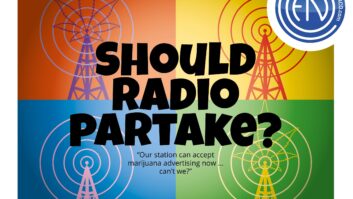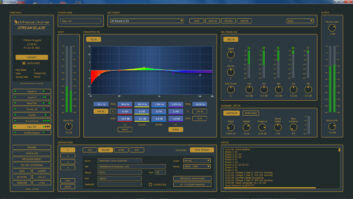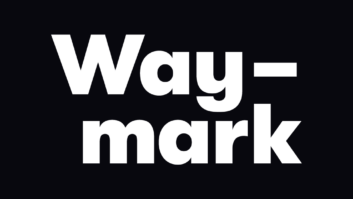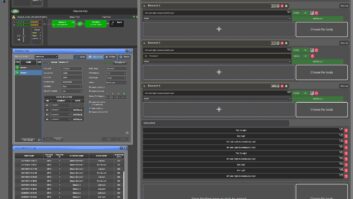Medical Marijuana Ads OK in Some Circumstances
Jun 1, 2010 12:00 PM, By Harry Martin
Due to changes in laws and enforcement policies at the state and federal levels, broadcasters may be able to legally carry ads for medical marijuana in states where medicinal use of the substance has been legalized.
Marijuana is a controlled substance and its sale or distribution is prohibited under Federal and state narcotics laws. However, last October the Department of Justice announced formal guidelines governing its enforcement policy with respect to medically-prescribed marijuana in those states where medical use of the drug is now legal. (About a dozen states have legalized medical marijuana so far.) In those states the DOJ has ceased prosecutions of legitimate growers and distributors of marijuana intended for medical use.
Legalizing marijuana sales has opened up possibilities for promoting such sales through advertising. And sure enough, a number of broadcasters have been asked to run spots for distributors of marijuana, including doctors’ offices and retail outlets. Unlike cigarette advertising, there is no FCC rule or policy that prohibits such advertising (although the Commission has long demonstrated a serious antipathy to drug use and distribution generally). In view of the DOJ enforcement policy, it appears that the current Administration is not likely to impose extra burdens on legitimate, state-sanctioned marijuana use � which suggests that advertising marijuana for such use should not cause problems � just as promotion of gambling in jurisdictions where it’s legal has long been approved.
However, anyone considering acceptance of medical marijuana ads should pay careful attention to factors such as the following:
- The distribution of marijuana for medical purposes must be permitted by state law in the area served by the station.
- Stations whose signals reach portions of states where medical marijuana has not been legalized may still be subject to Federal prosecution.
- A station accepting such ads must do a minimum of due diligence to make sure the advertiser is legitimate and not a drug trafficker masquerading as a medical dispensary.
- Advertising copy should be carefully screened to make sure it promotes use of marijuana to be dispensed under a doctor’s prescription. Local counsel should be consulted if there is any question about whether the ad describes an activity that might be considered to violate a state’s medical marijuana law.
There is risk involved in accepting medical marijuana ads even if these guidelines are followed. A mistake regarding the bona fide nature of an advertiser, or about interpretation of your state’s medical marijuana law, could result in legal trouble. A drug conviction, even for an inadvertent violation, could have serious implications at FCC license renewal time. And remember, the FCC itself has not yet formally addressed this question � even though the DOJ has clearly signaled a disinclination against bringing the law to bear against medical users who have their state’s blessing.
So the likelihood of being criminally prosecuted for advertising a product that is now legal, at least for medical uses, throughout your state and service area appears to be relatively small. But remember, applicable Federal anti-narcotics laws have not changed. All that’s changed is the DOJ’s enforcement policy. A violation of a state’s medical marijuana law could still have adverse legal consequences at both state and Federal levels, and ultimately at the FCC.
Dateline
July 8 is the new deadline for commercial licensees, including sole proprietors, to file biennial ownership reports on the FCC’s revised Form 323.
For noncommercial radio stations in Illinois and Wisconsin, their biennial ownership report deadline is Aug. 2.
Aug. 2 is the deadline for radio stations licensed in the following states to place their Annual EEO Reports in their public files: California, Illinois, North Carolina, South Carolina and Wisconsin.
The radio station license renewal cycle begins again in 2011, with the first batch of renewals due on June 1, 2011, for stations in D.C., Maryland, Virginia and West Virginia.
Martin is a member of Fletcher, Heald & Hildreth, PLC, Arlington, Virginia. E-mail:[email protected]












